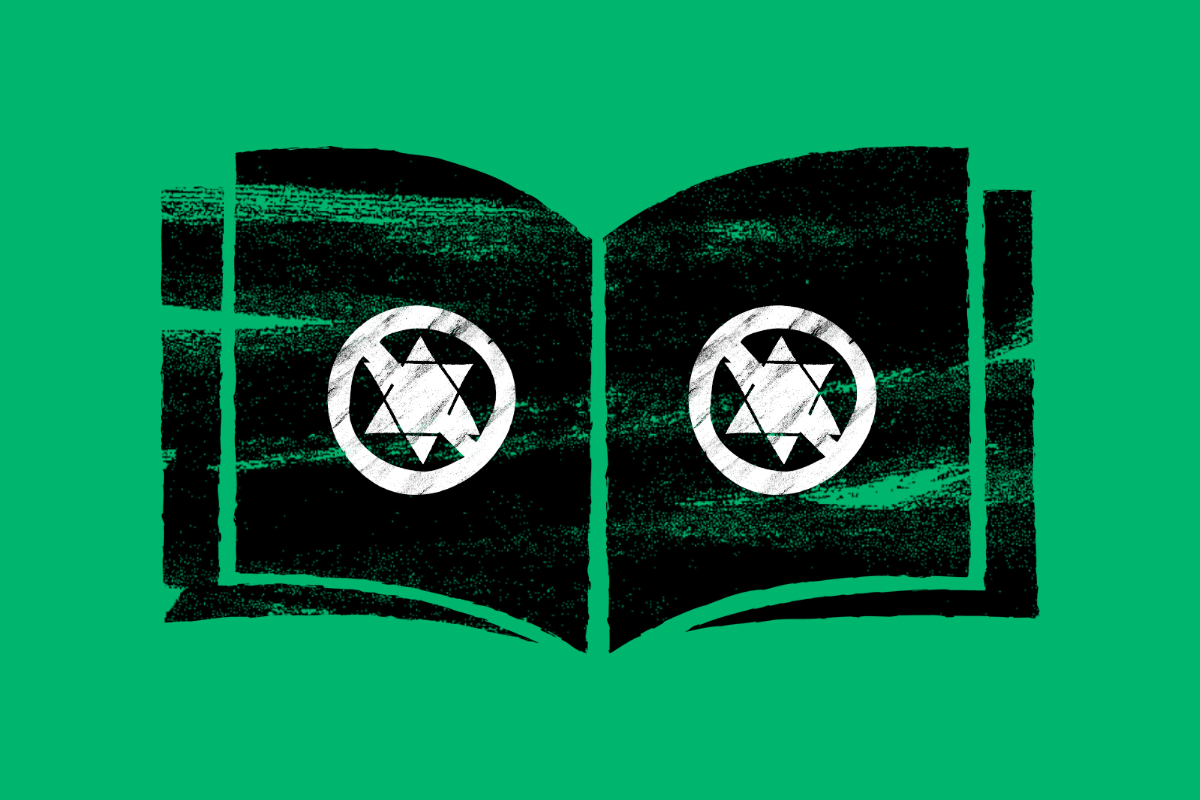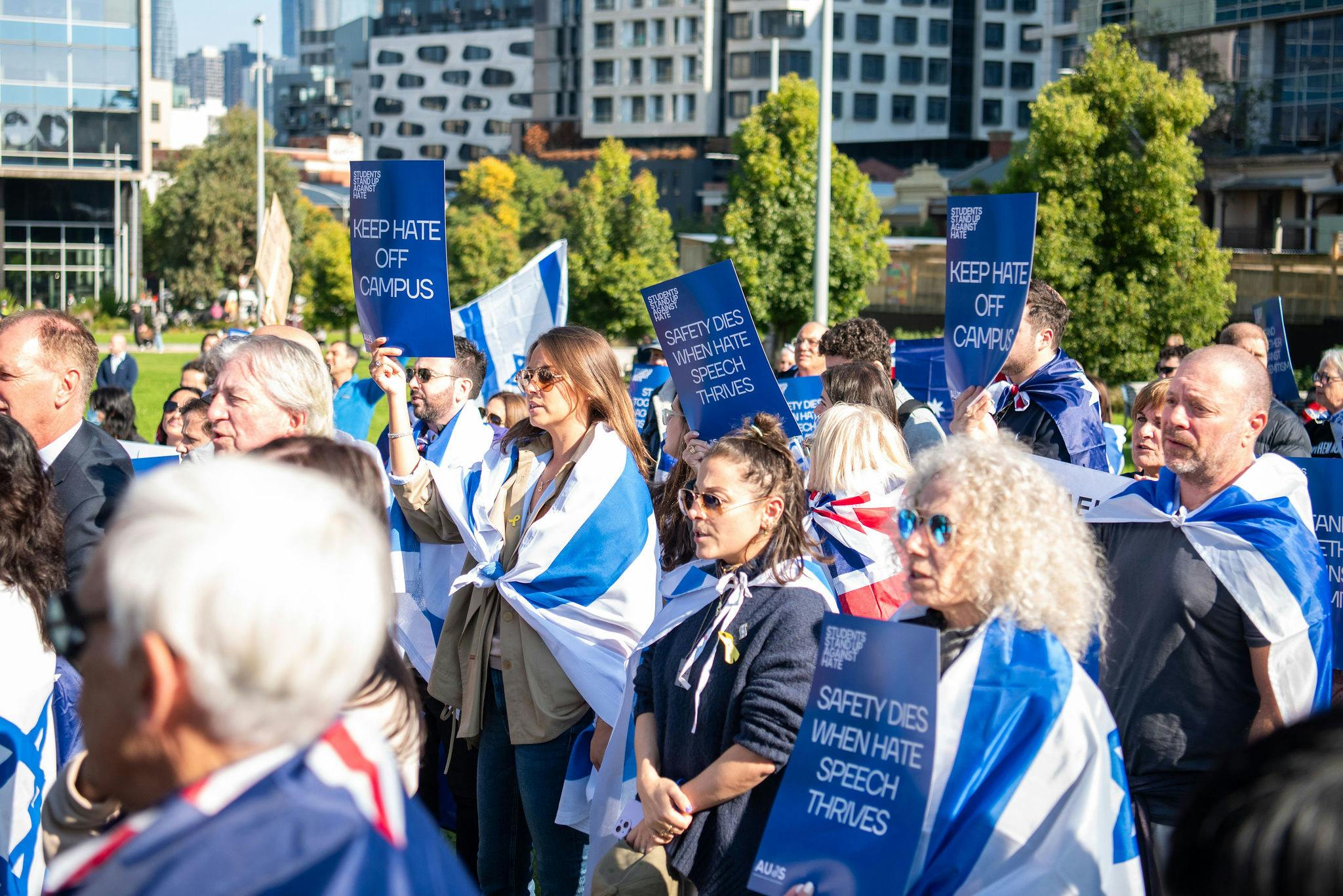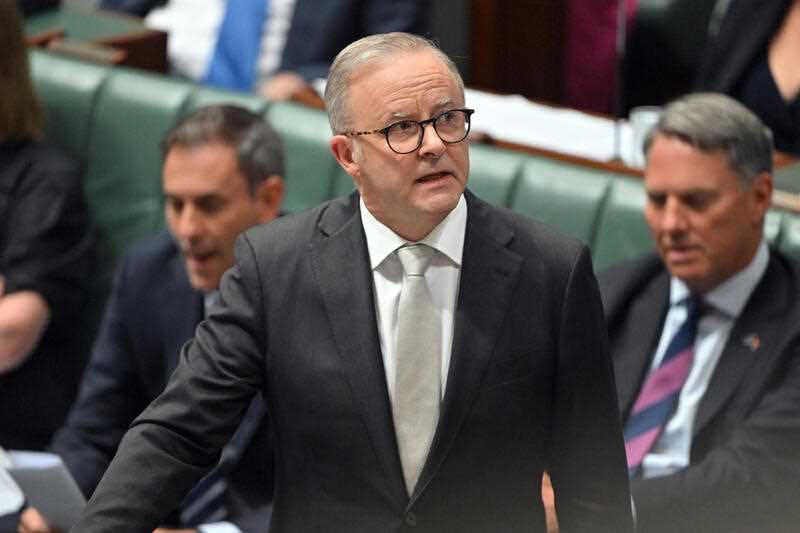Published: 2 August 2022
Last updated: 5 March 2024
As a people intimate with powerlessness, endurance and the lure of ancestral land, Jews should respond to the Prime Minister’s Garma speech with energy and empathy, writes RALPH GENENDE.
On Saturday, Anthony Albanese called on Australians to recognise First Nations people in the Constitution, to enshrine an Indigenous Voice to Parliament.
The Prime Minister was, of course, referring to the 2017 Uluru Statement from the Heart, which passionately, profoundly and precisely presented the request from 250 Indigenous leaders to have their voices heard:
“We seek constitutional reforms to empower our people and take a rightful place in our own country. When we have power over our destiny our children will flourish. They will walk in two worlds and their culture will be a gift to their country ... We call for the establishment of a First Nations Voice enshrined in the Constitution.”
The Uluru Statement is a cry for recognition, a statement for justice, a plea for compassion and a call to action. It is a spiritual cri de coeur. It is an echo of the voice of God so elegantly and eloquently invoked by King David in Psalm 29 and would surely speak to the Aboriginal soul in its interplay of “country” or the natural world and spirit: “The Lord’s voice echoes over the waters; the God of glory thunders … The Lord’s voice in power, the Lord’s voice in beauty…”
We identify with and are filled with admiration for the First Peoples’ commitment to the land of their ancestors. We are both peoples of long memory.
A spiritual call or invocation that we Jews, perhaps more than others, as a people intimate with powerlessness, endurance and the lure of ancestral land, can respond to with energy and empathy.
It is a call that we as a Jewish community should respond to, and if there is to be a referendum, to support it with “all our heart, soul and strength”. It is a moral imperative, a restoration of justice, a recognition of the pain of the other. Some, however, may dismiss it as pure symbolism and merely meaningless recognition.
We Jews understand, possibly better than most, the intense power of symbols (think the flag of Israel, the swastika); we know in our guts how the hunger for recognition is one of the deepest of human aspirations and longings.
Our identification with those who have suffered discrimination and devastation is not merely emotional, it’s the axis of Jewish ethics. The pivotal experience that shapes Jewish morality is the enslavement in and emancipation from the ancient Egyptian empire. On numerous occasions the foundational texts of the first five Biblical books call on the nascent nation of Israel to never forget they had been slaves. To remember is to react with care and empathy to the vulnerable (the widow and orphan) and the stranger. You know the heart of the stranger, and to know that heart is to reach out to all hurting hearts.
The Uluru Statement draws our attention to the inextricable bond between people and the land of their ancestors; it reminds us of the future that children nestle in their pristine hearts; it affirms the power of the past. As a people whose connection to land goes back some 3000 years – maintaining that link in their prayers and actions despite being exiled from their homes or being persecuted by foreign and often brutal oppressors in their own land – we know that connection to country goes way beyond the emotional.
It drills down into an even deeper spiritual current. It links us to our ancestors, the biblical patriarchs and matriarchs, Abraham and Sarah, Isaac and Rebecca, Jacob, Rachel and Leah. We identify with and are filled with admiration for the First Peoples’ commitment to the land of their ancestors. We are both peoples of long memory.
May the power and vision that impels our dreams help us promote the dreams of the first people of this land.
Remembrance is pivotal to Jewish identity, the injunction to remember is a religious imperative to the entire people of Israel. As the historian Yosef Yerushalmi noted, the Hebrew word for remembrance appears 169 times in the Bible. Our connection is spiritual but also recognises the political process that is essential to maintaining that continuity. The heart needs hands to implement its yearning. So, we join heart to heart, soul to soul, hand to hand with our First Nations families.
Some of our most evocative psalms are reminders of the longing for land and how country has embodied the dreams of Jews for thousands of years. Psalm 137 recalls how we wept by the Rivers of Babylon, remembering Zion and that most poignant line: “If I forget you Jerusalem, may my right hand forget its skill.” Psalm 126 is the counterpoint: “When the Lord brought back the exiles of Zion, we were like people who dream. Then our mouths filled with laughter and our tongues with songs of joy”.
Both these psalms became part of the most basic ritual of Jewish life – they are prefaces to the grace after meals, to be said after eating bread.
The word for bread and the word for dream in Hebrew contain the same letters. We hunger not only for bread, we also yearn for dreams. In this sense, we are a dreaming people.
May the power and vision that impels our dreams help us promote the dreams of the first people of this land so that their mouths may be filled with laughter and their tongues give voice to songs of joy.
Photo: Prime Minister Anthony Albanese and Yothu Yindi Foundation Chair Galarrwuy Yunupingu speak during the Garma Festival in northeast Arnhem Land (AAP)




